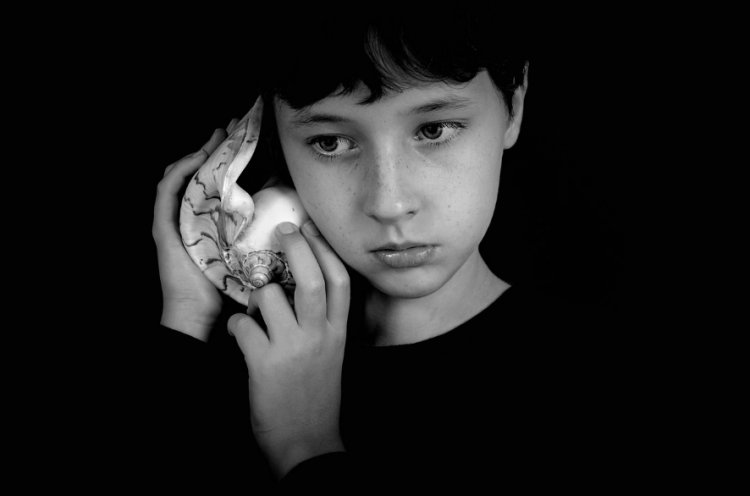Understanding Hearing Loss and Audiology: A Comprehensive Guide
Hearing loss is a prevalent condition that can significantly impact an individual's quality of life, communication abilities, and emotional well-being. In this comprehensive guide, we will explore the various aspects of hearing loss, including its causes, symptoms, diagnosis, and treatment options, as well as the role of audiology in addressing hearing-related issues.

- What is Hearing Loss?
Hearing loss, also known as hearing impairment or deafness, refers to a partial or total inability to hear sounds. It can occur in one or both ears and may range from mild to profound. Hearing loss can be classified into different types based on its severity and underlying causes.
Types of Hearing Loss:
- Conductive Hearing Loss: Caused by problems in the outer or middle ear that interfere with sound transmission to the inner ear.
- Sensorineural Hearing Loss: Caused by damage to the inner ear (cochlea) or auditory nerve, often resulting from aging, noise exposure, or genetic factors.
- Mixed Hearing Loss: Combination of conductive and sensorineural hearing loss, involving issues in both the middle and inner ear.
- Causes and Risk Factors
Common Causes of Hearing Loss:
- Aging (presbycusis)
- Noise exposure (noise-induced hearing loss)
- Genetics
- Ototoxic medications
- Infections (e.g., otitis media)
- Head trauma
- Diseases (e.g., Meniere's disease)
- Tumors (e.g., acoustic neuroma)
Risk Factors:
- Exposure to loud noise
- Family history of hearing loss
- Aging
- Ototoxic medications
- Chronic ear infections
- Smoking
- Diabetes
- Cardiovascular disease
- Symptoms of Hearing Loss
Common Symptoms:
- Difficulty understanding speech, especially in noisy environments
- Frequently asking others to repeat themselves
- Turning up the volume on electronic devices
- Withdrawal from social situations
- Ringing in the ears (tinnitus)
- Ear pain or discomfort
- Balance problems (in some cases)
- Diagnosis and Evaluation
Audiological Evaluation:
Audiological assessments are conducted by audiologists to evaluate hearing function and diagnose hearing loss. These assessments may include:
- Pure-tone audiometry
- Speech audiometry
- Tympanometry
- Otoacoustic emissions (OAEs)
- Auditory brainstem response (ABR) testing
Medical Evaluation:
In cases of sudden or severe hearing loss, a medical evaluation by an otolaryngologist (ear, nose, and throat specialist) may be recommended to identify and address any underlying medical conditions.
- Treatment Options
Hearing Aids:
Hearing aids are electronic devices worn in or behind the ear to amplify sound and improve hearing. They come in various styles and technologies to accommodate different degrees of hearing loss and individual preferences.
Cochlear Implants:
Cochlear implants are surgically implanted devices that bypass damaged portions of the inner ear and directly stimulate the auditory nerve, providing access to sound for individuals with severe to profound hearing loss.
Assistive Listening Devices (ALDs):
ALDs are devices designed to improve hearing in specific situations, such as watching TV, using the telephone, or listening in noisy environments. Examples include FM systems, loop systems, and captioned telephones.
Communication Strategies and Rehabilitation:
Speech-language therapists and audiologists can provide communication strategies and rehabilitation programs to help individuals with hearing loss improve their speech and language skills, as well as their ability to communicate effectively in various settings.
- Importance of Audiology
Role of Audiologists:
Audiologists are healthcare professionals specializing in the prevention, diagnosis, and treatment of hearing and balance disorders. They play a critical role in assessing hearing function, recommending appropriate interventions, and providing support and counseling to individuals with hearing loss and their families.
Hearing Conservation:
Audiologists also work in hearing conservation programs to educate individuals about the risks of noise exposure and promote strategies to prevent hearing loss, such as using ear protection devices and limiting exposure to loud noises.
- Conclusion
Hearing loss is a common and often challenging condition that can have profound effects on an individual's life. However, with early detection, appropriate interventions, and support from audiologists and other healthcare professionals, individuals with hearing loss can lead fulfilling and meaningful lives. By understanding the causes, symptoms, and treatment options for hearing loss, we can work together to promote hearing health and improve the quality of life for individuals with hearing impairment.
This comprehensive guide aims to provide valuable insights into the complexities of hearing loss and audiology, highlighting the importance of early intervention and access to quality hearing healthcare services. If you or someone you know is experiencing hearing-related issues, we encourage you to seek evaluation and support from a qualified audiologist or healthcare provider.
Coupoly offers a complimentary Medical Concierge Service, connecting you with leading doctors and clinics.
Reach out to us today.
What's Your Reaction?





















